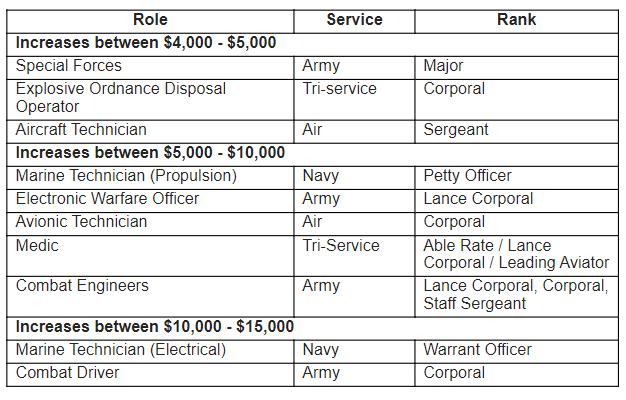
The Government is hoping to address attrition in the Defence Force with a major pre-Budget funding announcement that will deliver the "biggest pay increase in over a decade" for personnel.
As Newshub has previously reported, personnel are leaving New Zealand's Defence Force in droves and Defence Minister Andrew Little has called retention his "number one priority".
Little on Monday announced a $419 million boost to Defence's payroll, with personnel expected to receive pay increases of between $4000 and $15,000 depending on their rank, role and service branch. This will start from July 1.

"High rates of staff turnover, as well as increasing calls on the NZDF such as responding to Cyclone Gabrielle, training Ukrainian troops in the UK, and surveillance and patrolling in our region means our forces are stretched," Little said.
He said that's four times higher than any previous Defence remuneration boost over the past decade and will go a "long way to address attrition issues and make Defence a career of choice".
"It means 90 percent of NZDF personnel will now be paid at, or close to, market rates."
He said there is a "moral obligation to ensure our soldiers, sailors and aviators are fairly paid for the critical and often dangerous work they do, and the Government takes that responsibility seriously on behalf of all New Zealanders".
"Defence personnel contribute to a more peaceful and secure world both on and offshore. With climate change and an increasingly contested geo-strategic environment including in our Pacific neighbourhood it is important that New Zealand has the personnel and equipment to play our part in supporting global peace and security."
Little said New Zealand had deployments "supporting the UN peacekeeping mission in South Sudan, supporting stability in the Solomon Islands, observing border lines in the Middle East and the Korean Peninsula, providing mutual assistance and training to Pacific Island countries, and training Ukrainian forces in the UK to defend their country against Russia's illegal and unjustified aggression".
In the Budget package, there is also a further $328 million for upgrading Defence Force assets and infrastructure, including $90 million to "deliver upgraded aviation fuelling facilities at Ohakea, and $93 million will provide world-class communications to our frigates and new Bushmaster protected mobility vehicles".
"$85 million to improve Defence housing, with up to 50 new buildings at Waiouru, and a renovation pilot for 13 properties at Burnham, Linton and Ohakea," Little said.
"Many personnel and their families are asked to move between bases to serve and it is important the housing provided is suitable to support them to do their jobs."
The Defence Force has been struggling with the tightening labour market and personnel leaving for better pay. It previously began offering one-off payments to staff as part of a $60 million retention programme.
"The fact that we have to make one-off payments is an indication that current levels of remuneration aren't satisfactory and the fact we are losing people to the private sector," Little told Newshub last month.
Exit surveys previously reported on by Newshub reveal just 20 percent of personnel agreed their pay was fair and only 25 percent believed the housing assistance they received was adequate.
Chief of Defence Force Air Marshal Kevin Short has said the level of attrition is one of the highest recorded for decades.
"It's more than three years to even grow back to those numbers," Air Marshal Short said. "Some of those skills we've lost will take five to 10 years to actually renew."
Defence staffing has also been tested in recent years by needing to assist with the Government's COVID-19 response, particularly at managed isolation and quarantine (MIQ) facilities.
At the 2022 Budget, $90 million was pumped into improving the pay of lower-paid Defence Force staff to deliver them "greater economic security". Since taking office, the Government's committed more than $4.7 billion to Defence.
The Budget announcement comes amid a review of the Government's defence policy.

